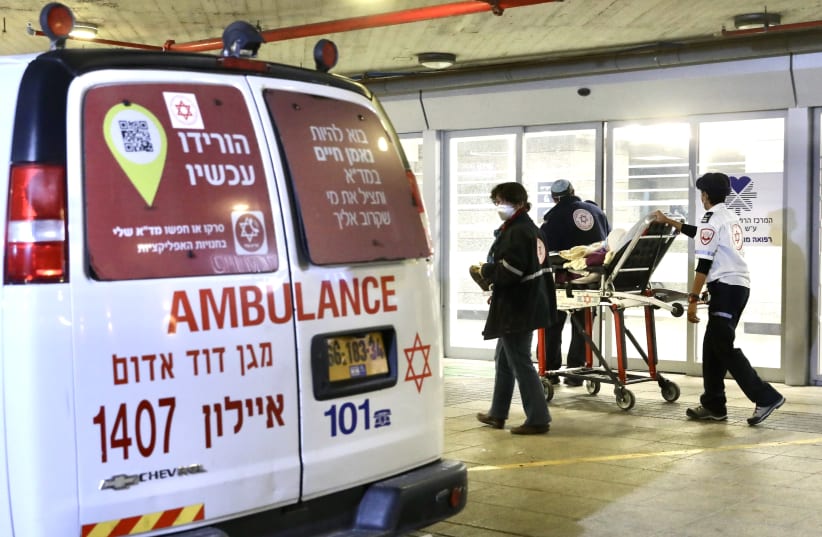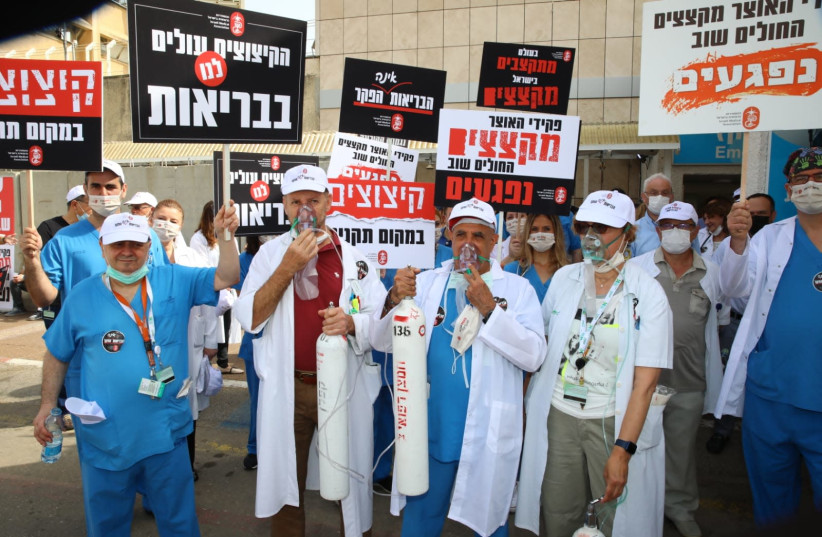Several major medical centers in Israel stopped accepting new corona patients on Monday due to a financial crisis, a spokesperson for the hospitals confirmed.
The facilities include Jerusalem’s Shaare Zedek Medical Center and Hadassah-University Medical Center, Netanya’s Laniado Medical Center, Ma’aynei Hayeshua Medical Center, Bnei Brak, and three hospitals in Nazareth, together serving two million people, or about 20% of the population.
The so-called “public” hospitals are independent organizations that rely mostly on donations, as opposed to facilities directly owned and funded by the government or health funds.
The hospitals began protesting in January due to a financial crisis, with organizers saying their facilities had received only about half the funds per bed that government-owned hospitals received.
The crisis ended when the government agreed to increase their budgets.
However, since the beginning of the summer, the hospitals have said authorities have not been fulfilling their promises.
“I’m ashamed to stand here like a beggar,” said Shaare Zedek CEO Prof. Ofer Marin, during an emergency press conference in front of the Health Ministry. “The State of Israel is violating the agreement with the public hospitals. None of the clauses of the agreement have been fulfilled. Our suppliers have collapsed. Our employees may not receive holiday pay. Our patients may not receive optimal care.”
Magen David Adom started to evacuate patients on Monday to facilities in central Israel, a spokesperson said.
The hospitals are all located in “red” or “orange” areas of high infection, according to the Coronavirus Traffic Light System.
Hospital representatives said that starting on Wednesday, hospitals will begin operating in Shabbat mode, only providing emergency care.
A meeting between the hospital heads and the Health Ministry on Sunday ended with no progress.
Directors-general of the Health and Finance ministries Nachman Ash and Ram Blinkov met with other relevant officials on Monday to ensure that the budgets promised to the hospitals will be allocated and available as soon as possible.
According to the statement, the government committed to the budget for the first half of the year, but the ministers said they will work to maintain it for the rest of 2021 while speeding up payments.
“I fully appreciate the sacred work that is being carried out at the hospitals in Israel, especially during this challenging period,” Blinkov said. “I expect that the public hospitals will continue to provide answers to the Israeli public at this complex time in light of our commitment to maintaining the agreement with them in full.”

